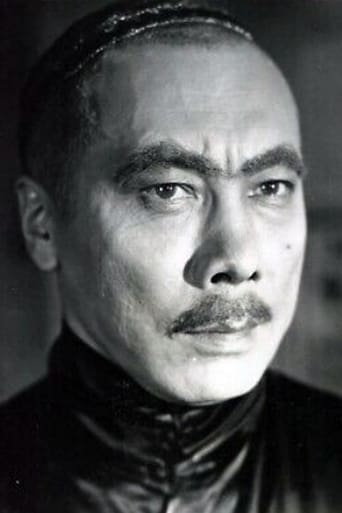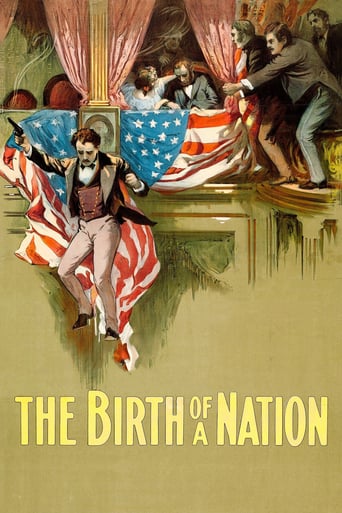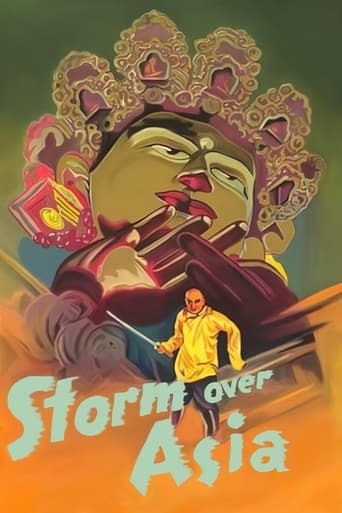
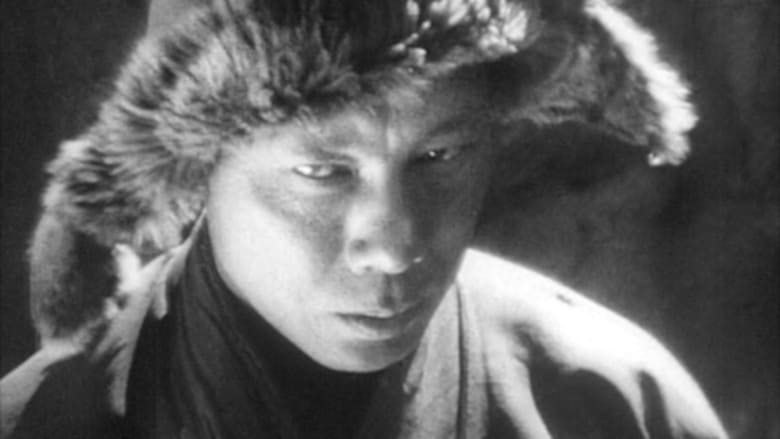
Storm Over Asia (1928)
In 1918 a young and simple Mongol herdsman and trapper is cheated out of a valuable fox fur by a European capitalist fur trader. Ostracized from the trading post, he escapes to the hills after brawling with the trader who cheated him. In 1920 he becomes a Soviet partisan, and helps the partisans fight for the Soviets against the occupying British army. However he is captured by the British when they try to requisition cattle from the herdsmen at the same time as the commandant meets with a reincarnated Grand Lama. After the trapper is shot, the army discovers an amulet that suggests he is a direct descendant of Genghis Khan. They find him still alive, so the army restores his health and plans to use him as the head of a puppet regime. The trapper is thus thrust into prominence as he is placed in charge of the puppet government. By the end, however, the "puppet" turns against his masters in an outburst of fury.
Watch Trailer
Cast
Similar titles
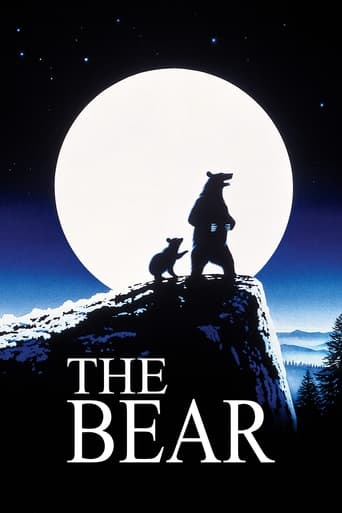
Reviews
I like the storyline of this show,it attract me so much
Good movie but grossly overrated
The story-telling is good with flashbacks.The film is both funny and heartbreaking. You smile in a scene and get a soulcrushing revelation in the next.
The thing I enjoyed most about the film is the fact that it doesn't shy away from being a super-sized-cliche;
This Russian silent film from I found in the book 1001 Movies You Must See Before You Die, I didn't know anything about the plot or what it would involve, but I was hoping it would worthy of its place in the book. Basically it is set in 1918, where Bair, the young and simple Mongol Huntsman, herdsman and trapper (Valéry Inkijinoff) is cheated out a valuable fox fur that he tries to sell to unscrupulous European capitalist fur trader Henry Hughes (Viktor Tsoppi). Bair gets into a brawl with the trader after cheating him, this brawl becomes much bigger with more people involved and he is ostracised from the trading post, so he is forced into escaping to the hills. By the year 1920, Bair becomes a Soviet partisan, and he becomes involved in the fight for the Soviets against the British army who are occupying the country. But Bair ends up captured by the British when they try to requisition cattle from the herdsmen at the same time as The British Commandant, commander of the occupation forces (I. Dedintsev) meets with a reincarnated Grand Lama (F. Ivanov). Bair is shot, the British army discover an amulet in his possession, examining it is suggested that he is a direct descendant of Genghis Khan, founder and Great Khan (emperor) of the Mongol Empire. They find Bair still alive, and restore him to health and plan to use him, with his discovered heritage, as the head of a puppet regime, he is therefore thrust into prominence and placed in charge of the puppet government. By the end of the film however Bair as the puppet turns against his masters, who placed him in his position, in an outburst of fury, and a Mongol army is raised to clash against the British army, it ends at the point the two sides would strike each other. Also starring I. Inkizhinov as Bair's Father and Aleksandr Chistyakov as The Russian Rebel Leader - Commander of a partisan detachment. This film is very inaccurate according to history, the British army never occupied Mongolia, but the story of a simple fur trapper shunned away and then becoming like royalty is interesting, there are some great montage sequences with terrific editing, the costumes and detail of location are well done, and it is sweeping and action filled in some moments, I'm not sure I fully agree with five stars out of five by the critics, but it is a worthwhile classic silent drama film. Very good!
This is an unusual project, deeply polemic like all Soviet cinema of the period but with the entire 'tyrants and proles' puppet play relocated to the far eastern steppe; so standing in for the exploited but spirited with fight peoples are now the indigenous Mongols, but again trapped between antiquated, superstitious religion and a cruel ruling elite financed by unethical capitalism. Workers back in Moscow and Lenigrand were supposed to relate.Pudovkin is talented in making the equivalence, he intercuts the military aristocrats being pampered and groomed for an occasion with the Buddhist priests being helped in their ceremonial attire to receive them. The meeting of these two oppressors is marked with secret dances made to look chaotic, and Buddhist music made to sound intentionally grating and dissonant.The mockery continues inside the temple, with the all-knowing, wise high lama revealed to be only a child; he looks apprehensive as everyone accords him the utmost respect. The insidious comments are particularly egregious when viewed in context of what the Buddhist were about to suffer in the hands of the Chinese comrades and how much of that elaborate spiritual culture was trampled under the mass-suicide of Mao's agricultural reforms.Most of it flows by without much incident; vast dusty landscapes, petty human cruelties. Wars, and counterwars. The plot is eventually about a humble Mongol fur trapper being mistaken for the heir of Genghis Khan and groomed by the military to be the puppet ruler of a new nation.Pudovkin was never quite an Eisenstein or Dovzhenko; he could concentrate his films into a motion as pervasive as they did, but couldn't sustain for as long. So we get bumpy stretches across otherwise pleasant vistas.But then we have the ending, absolutely one of the finest pieces of silent cinema. It is a karmic hurricane of splintered image; motion that begins indoors with a fight is eventually transferred outside and escalates in a revolutionary apocalypse of stunning violence that scatters an entire army across the steppe like dead leaves. Trees, dust, crops, dirt - all rushing before the camera like Pudovkin's montage is so frenzied and powerful it threatens to rip apart the very fabric of the world.Watch the film just so you get to this part, then watch side by side with Kuleshov's By the Law for the haunting aftermath of the apocalypse that begins here, and Zemlya for how it's endured. The call is, as usual, for revolution, but we can use it now in all three films as a broader metaphor about the effort to release the energies of the soul, about a metaphysical breakthrough.Watch like you were having your soul trained for this breakthrough.
A confident and defiant film, Storm Over Asia succeeds as both a rabble-rousing bit of propaganda and an entertaining adventure film.The film depicts the simple Mongol herdsman and trappers calmly and pleasantly practicing their commerce, until one is cheated out of a valuable fox fur by a CAPITALIST PIG (that's us, kids). He gets into a brawl with the dude, and is ousted from the co-op for doing so. In exile, he escapes to the hills and becomes a Soviet supporter, and helps them fight against the occupying British army. He is captured by the British (during a meeting with a baby that is apparently the reincarnated Grand Lama) and sent out to be shot. But after being sent out, the army discovers an amulet that suggests he is a direct descendant of Genghis Khan, so they rush out, save him (He fled and got shot in the belly), and install him as a sort of promotional puppet leader. But once he gains more prominence, he decided to turn against his CAPITALIST PIG bosses.The film is well-directed and well-put-together, with every scene having a rough polish befitting the Soviet defense. I considered mentioning that the CAPITALIST PIGS were a bit one-dimensional, but if honestly, they probably were quite a bit like this, especially from their perspective, and the most underpraised of the Soviet masters, Vsevelod Pudovkin, has a sure hand that keeps the film paced damn near to perfection, and I never lost interest for a moment, leading to a satisfying guns-blazing finale to which the film had been building throughout.Storm Over Asia provides yet another lament for the advent of sound, as so many films from the late 1920s exhibited a myriad of great directors perfecting the artform, before sound tore it all down, forcing them to start all over again, ensuring a film like Storm Over Asia would never be able to be made, the way it was so wonderfully made, ever again.{Grade: 8.5/10 (B+) / #4 (of 13) of 1928}
Contrary to what the English guy says (hey, the Brits are the bad guys in this movie, whaddaya expect), this is to my mind the most impressive work of Soviet silent cinema-- an epic with several dazzling sequences of rat-a-tat-tat editing that invite comparison with Gance's Napoleon, as well as a deliberate build to an explosive climax that, in its willingness to delay gratification until almost the breaking point, has the operatic grandeur of something like The Godfather. Highly recommended (in fact, highly recommended before you see less accessible works such as October or Potemkin).
